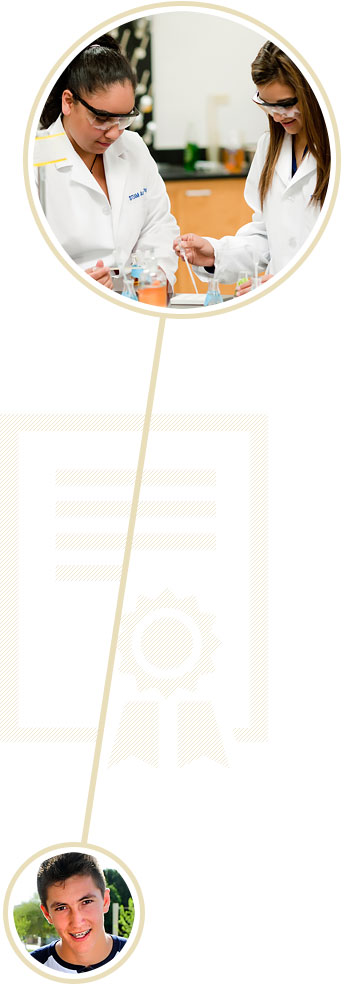Empowering Native American Youth for Higher Education Success
Native American students in Arizona currently have the lowest high school and college graduation rates of any other population in the state(7). Additionally, 36 percent of Native Americans in Arizona live below the poverty level compared to 19.6 percent for all Arizonans. The average per-capita income of Native Americans in Arizona is the lowest of all racial groups(8).
To address this disparity, the Foundation is developing strategic partnerships to help increase student achievement within the Native American community.
Through a $667,000 partnership with the University of Arizona Foundation, the Native American SOAR (Student Outreach Access and Resiliency) project is being implemented.
Native SOAR incorporates two comprehensive, indigenous approaches:
- The Family Education Model, which recognizes the inclusion of family in the college-going culture to enhance Native American students’ college success, and
- The American Indian Well-Being Model, which uses a holistic approach for addressing the needs of Native American students.
Native SOAR is a three-year project that is empowering and preparing Native American youth living in Tucson and the surrounding Native American Reservation communities for higher education access and success. The goal is to increase the number of Native American students who pursue and complete high school and higher education.
A key component of the initiative is to increase college aspirations for high school students and their families and knowledge about the college search, application, financial aid and enrollment processes. It’s helping undergraduate students increase their understanding of long-term educational planning and improve their leadership skills, cultural awareness and self-efficacy.
Native SOAR incorporates a strategic mentoring and service learning model where Native American high school students are being mentored by Native American undergraduate students and Native American undergraduates are being mentored by Native American graduate students.
This program is an opportunity to address and improve the educational achievement for Native American students in Arizona, and it will also address the lack of research on Native American college access and success.
Helios is also partnering with the InterTribal Council of Arizona on an Indian Education Summit on Common Core in 2014. With participation from 22 federally-recognized tribes throughout Arizona, the Summit will discuss the state of Indian education in Arizona. In addition, the Summit will address Arizona’s College and Career Ready Standards (Common Core) and how to successfully implement those Standards throughout Native American communities. The ultimate goal of the Summit is to develop best practices and create collaboration and knowledge-sharing among the tribes to increase student achievement and preparedness.
Native American SOAR Project Collaborative Partners
University Partners
- Native American Student Affairs (NASA)
- Executive Office of the President
- Early Academic Outreach (EAO)
High Schools
- Tucson Unified School District (Cholla High School, Pueblo High School, Tucson High School)
- Ha:san Preparatory & Leadership School
- Haiki High School
- Baboquavari High School
- Tohono O’odham High School
Tribal Partners
- Tohono O’odham Nation, Education Division
- Pascua Yaqui Nation, Education Division
- Navajo Nation, Financial Aid and Scholarships Department



